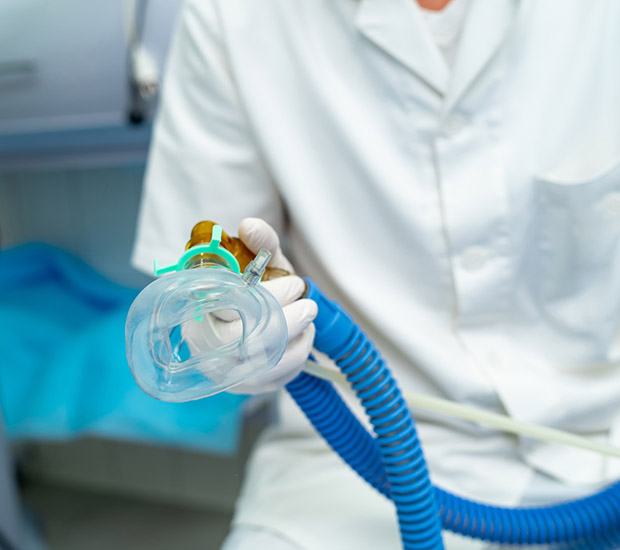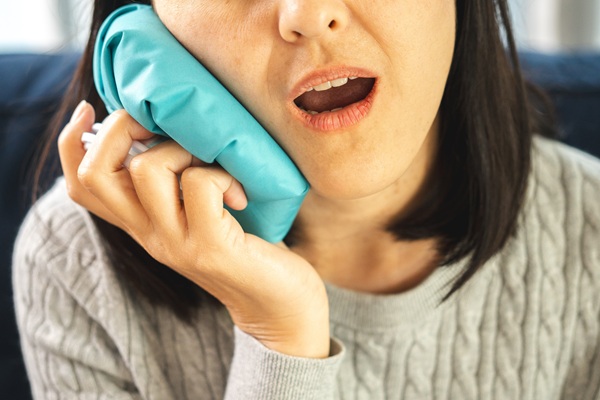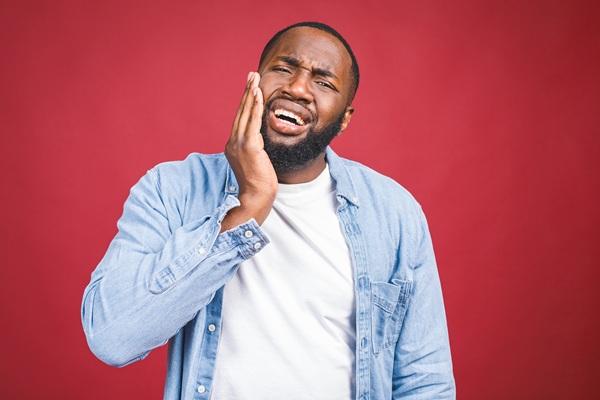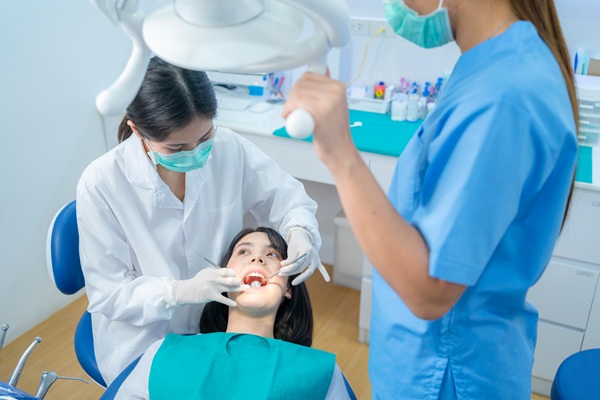Sedation DentistryLone Tree, CO
If you are anxious in the dentist's chair, sedation dentistry may be right for you. Dental anxiety often holds patients back from taking care of their oral health. Sedation dentistry uses medication to help you relax during your procedure.
Sedation dentistry is available in Lone Tree and the surrounding area. Do not let your fear get in the way of your dental health. Call us at 303-524-9343 to schedule an appointment or learn more about our services.
What Is Sedation Dentistry?
As stated by WebMD, sedation dentistry "uses medication to help patients relax during dental procedures." It is occasionally referred to as "sleep dentistry," but the two are not interchangeable terms. Sleep dentistry uses medication to render patients unconscious during their procedure. Unless the patient is under general anesthesia, patients under sedation dentistry are typically awake. The four different levels of sedation dentistry are as follows:
- Minimal sedation — where the patient is relaxed but awake
- Moderate sedation, also known as “conscious sedation” — where the patient may forget much of the procedure
- Deep sedation — where the patient is barely conscious
- General anesthesia — where the patient is entirely unconscious
Check out what others are saying about our Endodontic services on Yelp: Sedation Dentistry Lone Tree
What Conditions Require Sedation?
Anyone with a genuine fear or anxiety revolving around oral healthcare can benefit from sedation dentistry. It may also benefit those who:
- Are unable to sit still in the dentist’s chair
- Have a low pain threshold
- Have a poor gag reflex
- Have very sensitive teeth
- Need a substantial amount of dental work completed
Children may also be given sedation if they are afraid of the dentist or are unable to cooperate during the visit. Most children are well-suited for nitrous oxide, which can be administered by most dentists. Some dentists also have the necessary training to give children oral sedation, which is safe when kept within the recommended dose. We can go over this option for a patient's treatment during a consultation.
What Are the Different Types of Sedation Dentistry?
There are four different types of sedation used in sedation dentistry. In order of severity, these include:
- Inhaled minimal sedation
- Oral sedation
- IV moderate sedation
- Deep sedation and general anesthesia
Inhaled minimal sedation, also known as nitrous oxide or "laughing gas," can be easily controlled by the dentist to control the patient's level of relaxation. Additionally, its effects wear off quickly, meaning it is the only form of sedation where patients can drive themselves home after their procedure. Depending on the total dosage, oral sedation can range anywhere from minimal to moderate. Moderate oral sedation is enough for some people to fall asleep during the procedure, though they can typically be awakened with a gentle shake.
In IV moderate sedation, the dentist administers the sedative intravenously to allow it to work more quickly. This also allows the dentist to continually adjust the patient's sedation level. Deep sedation and general anesthesia can render the patient either almost or totally unconscious throughout the procedure.
What Are the Pros and Cons of Sedation Dentistry?
Sedation dentistry is the easiest way to soothe the patient and help them relax during the procedure. It also facilitates the practitioner in operating, as the patient cannot move against their will. This is especially true for children, who are particularly susceptible to being fidgety when nervous. Many patients also enjoy that general anesthesia induces a form of amnesia wherein they cannot remember the dental procedure.
Still, patients should also consider some of the potential disadvantages of sedation dentistry. In many cases, it requires a practitioner who has undergone advanced training, since not every dentist can administer or offer sedation. A trained team is also necessary, as are the proper facilities and equipment. As such, a patient's choices in dental practitioners may be limited.
Who Is a Candidate for Sedation Dentistry?
Most patients are appropriate candidates for sedation dentistry. As stated by Mayo Clinic, even those with significant health conditions can undergo general anesthesia without any problems. One's risk for complications is typically more dependent upon the type of procedure they are undergoing and their general physical health.
It is vitally important for patients to let us know if they have any preexisting conditions or are currently taking any drugs, medications, or supplements. We must also know if the patient has any allergies. We can then determine which sedation option, if any, is appropriate for the patient's unique needs.
Call Us Today
Do not let dental anxiety stop you from getting the oral healthcare you need. We at Creekside Endodontics - Lone Tree Endodontist can help. Call us at 303-524-9343 to schedule an appointment or learn more about our services.
Frequently Asked Questions
Is there a difference between sedation dentistry and sleep dentistry?
Yes. Sedation dentistry involves the use of a sedative to relax the patient. Sleep dentistry uses deep sedation or general anesthesia to put the patient to sleep.
Can sedation dentistry also help relieve pain?
Yes. Sedatives can ease fear, while anesthesia can ease pain. The two are typically used together to allow patients to have the most comfortable possible experience.
How long will I be under sedation?
It depends on the type of dental procedure you will be undergoing. However, it typically ranges from one to six hours. Inhaled sedation typically subsides the quickest.
What are some of the side effects of oral sedation?
There are many possible side effects of oral sedation. For instance, you may experience dry mouth during or after the procedure, grogginess, headache, and nausea. It is important to remember that the above list is not exhaustive. We will prepare you for what to expect.
Is oral sedation suitable for my child?
It depends. However, we will typically avoid oral sedation in children unless absolutely necessary. The best option for children is usually nitrous oxide.
Are there any additional risk factors my sedation dentist should be aware of?
We will perform a thorough physical examination and require a detailed medical history to determine if sedation carries any added risk for your unique case. These risks may include but are not limited to cardiac anomalies, epilepsy, enlarged tonsils, and vasovagal syncope.
Contact Us
Creekside Endodontics - Lone Tree Endodontist is located at 10450 Park Meadows Dr. Suite #306 Lone Tree, CO 80124.
Helpful Related Links
- American Dental Association (ADA). Glossary of Dental Terms. 2021
About our business, license, and website security
- CreeksideEndodontics – Lone Tree Endodontist was established in 2011.
- We accept the following payment methods: American Express, Cash, Check, Discover, MasterCard, and Visa
- We serve patients from the following counties: Douglas County
- We serve patients from the following cities: Lone Tree, Centennial, Highlands Ranch, Parker, Aurora, Denver, Castle Rock and Castle Pines
- National Provider Identifier Database (1710963343). View NPI Registry Information
- Norton Safe Web. View Details
- Trend Micro Site Safety Center. View Details





